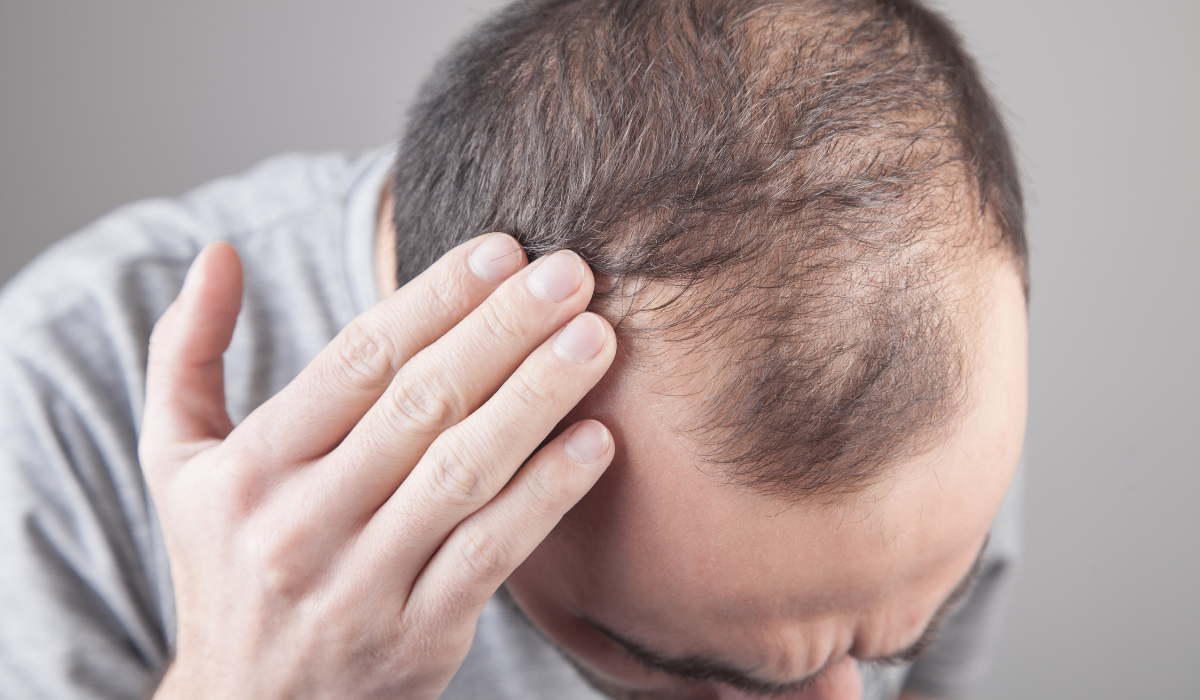Can Lack of Sleep cause Hair Loss

Hair loss is a common concern for many people, and it can be caused by a variety of factors, including genetics, age, hormones, and stress. One factor that has been suggested to contribute to hair loss is lack of sleep. We will explore the relationship between lack of sleep and hair loss, including the science behind it, the potential causes, and the ways to prevent and treat it. Lack of sleep is a common problem that affects many people. It can be caused by various factors, including lifestyle habits, work-related stress, medical conditions, and medications.
The Science behind Hair Growth and Sleep
Before we dive into how lack of sleep can cause hair loss, let’s first understand the basics of hair growth. Hair growth is a complex process that involves multiple stages, including the anagen (growth) phase, catagen (transition) phase, and telogen (resting) phase. During the anagen phase, hair follicles grow and divide rapidly, while during the catagen phase, the follicles shrink and detach from the blood supply.
How Lack of Sleep Can Affect Hair Growth
Now that we know how important sleep is for hair growth, let’s explore how lack of sleep can affect it. There are several potential causes of hair loss related to lack of sleep, including stress and cortisol levels, hormonal imbalances, nutrient deficiencies, inflammation, and oxidative stress.
- Stress and Cortisol Levels
Stress is a common cause of hair loss, and lack of sleep can contribute to it. When we don’t get enough sleep, our body produces more cortisol, a stress hormone that can damage hair follicles and lead to hair loss. Additionally, lack of sleep can increase inflammation and oxidative stress, which can also contribute to hair loss.
- Hormonal Imbalances
Sleep plays a crucial role in regulating hormone levels, and lack of sleep can disrupt this balance. Specifically, lack of sleep can increase levels of dihydrotestosterone (DHT), a hormone that contributes to hair loss. DHT binds to hair follicles and causes them to shrink, leading to thinner and weaker hair.
- Nutrient Deficiencies
Sleep is also important for nutrient absorption and utilization. When we don’t get enough sleep, our body may have difficulty absorbing and using nutrients that are important for hair growth, such as vitamins B, C, and D, iron, and zinc. These nutrient deficiencies can contribute to hair loss.
Common Myths About Hair Loss
Hair loss is a common problem that affects millions of people worldwide, yet there are many myths and misconceptions surrounding it. In this section, we’ll debunk some of the most common myths about hair loss.
- Myth 1: Wearing Hats Causes Hair Loss
Many people believe that wearing hats can cause hair loss. However, there is no evidence to support this claim. Hats may cause hair breakage or split ends if worn too tightly, but they do not cause hair loss.
- Myth 2: Stress Causes Permanent Hair Loss
Stress can contribute to hair loss, but it usually only causes temporary hair loss. When the body is under stress, it can enter a phase called telogen effluvium, which causes hair to stop growing and fall out. However, this type of hair loss is usually reversible and the hair will grow back once the stress is relieved.
- Myth 3: Hair Loss Only Affects Men
Hair loss is often thought of as a male problem, but it can affect women as well. In fact, women make up nearly 40% of hair loss sufferers. The causes of hair loss in women may be different than those in men, but the problem is just as real.
- Myth 4: Hair Loss Is Caused by Poor Blood Circulation
While good blood circulation is important for hair health, poor circulation alone is not a direct cause of hair loss. Hair loss is usually caused by a combination of genetic, hormonal, and environmental factors.
- Myth 5: Hair Loss Is Always Genetic
While genetics can play a role in hair loss, it is not the only factor. Other factors such as stress, hormonal imbalances, and certain medications can also contribute to hair loss.
- Myth 6: Hair Loss Can Be Reversed with Shampoos and Conditioners
While there are many shampoos and conditioners on the market that claim to reverse hair loss, most of them are not effective. Hair loss is a complex problem that requires a comprehensive approach to treatment.
Conclusion
In conclusion, lack of sleep can contribute to hair loss through various mechanisms, including stress and cortisol levels, hormonal imbalances, nutrient deficiencies, inflammation, and oxidative stress. Preventing and treating hair loss caused by lack of sleep involves getting enough sleep, managing stress, and ensuring proper nutrition. If you are experiencing hair loss, it is important to consult with a healthcare professional to determine the underlying cause and develop an appropriate treatment plan.
RECENT ARTICLES
